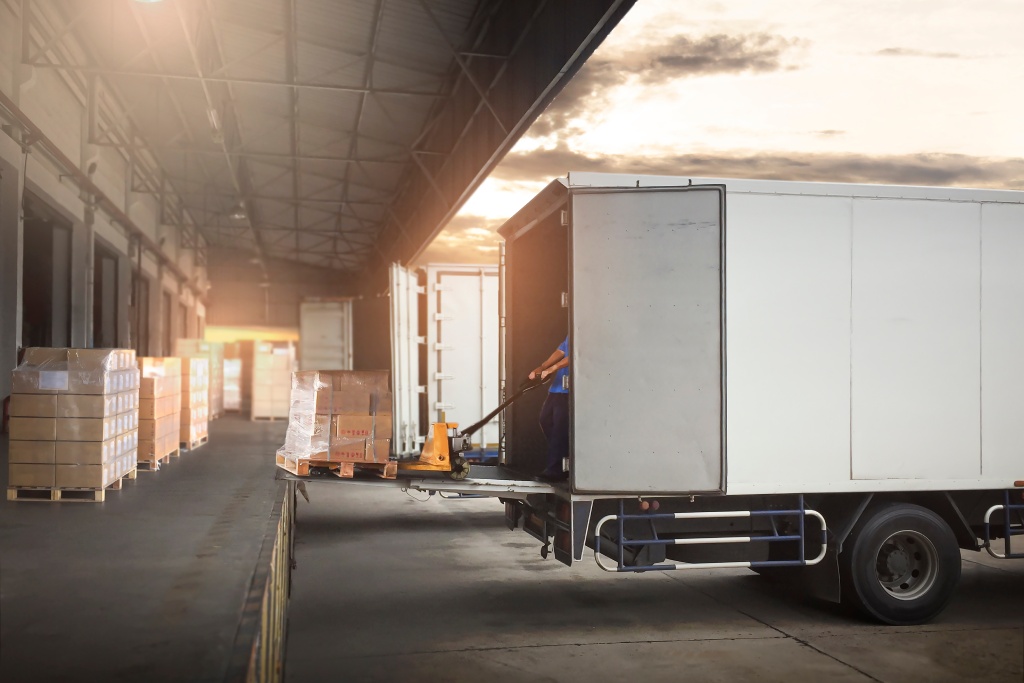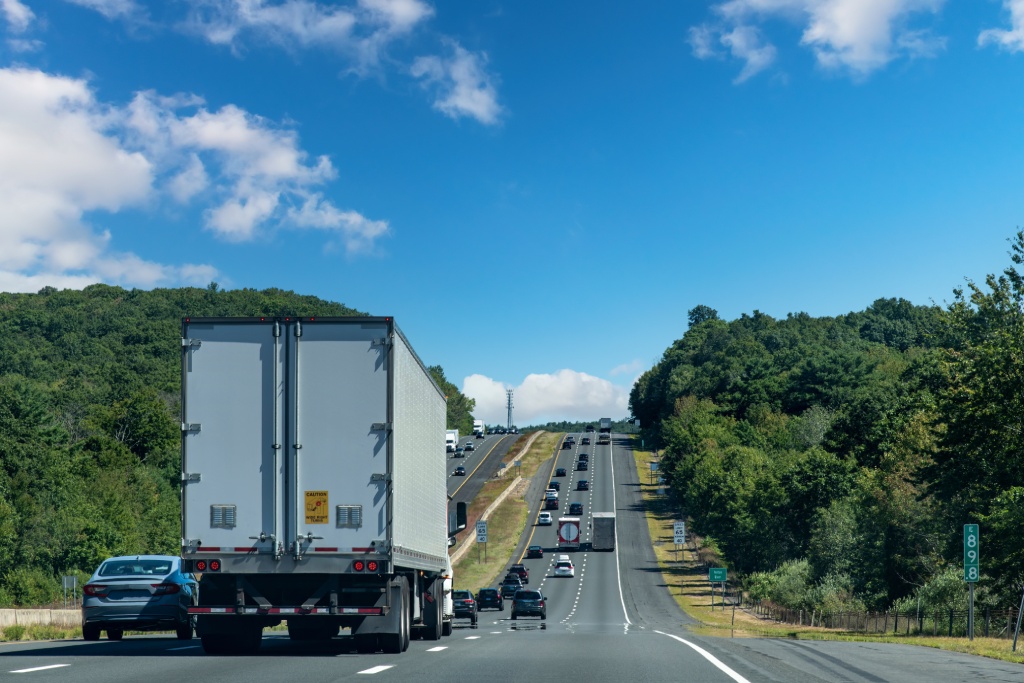What Does OTR Mean in Trucking?
In the fast-paced world of logistics and global trade, understanding the terminology that drives supply chain operations is essential. One such term is OTR, or Over-The-Road, a concept critical to the seamless movement of goods across vast distances.
For logistics managers and businesses involved in importing and exporting, OTR trucking plays a pivotal role in bridging the gap between ports, warehouses, and final destinations, especially considering that trucks move roughly 72.6 percent of the nation’s freight by weight.
In this blog, we’ll break down the essentials of OTR trucking, its importance in supply chains, and how it impacts your business.
OTR in the Context of Logistics

OTR trucking refers to the long-distance transportation of freight across extensive geographic areas, often spanning multiple states or countries. This mode of trucking is a cornerstone of the logistics industry, enabling businesses to move goods efficiently between production facilities, warehouses, distribution centers, and final destinations.
In the broader logistics and supply chain process, OTR trucking acts as a vital link that connects key nodes in the supply chain. For importers and exporters, OTR trucking often bridges the gap between ports or airports and inland destinations, ensuring the seamless flow of goods from origin to end-user. It’s particularly important in multimodal transportation, where OTR serves as the crucial final or intermediary leg of a shipment’s journey.
The types of goods transported via OTR are diverse, reflecting the wide-ranging needs of industries that rely on this service. These include:
- Raw materials: Lumber, steel, and other resources used in manufacturing.
- Finished products: Consumer goods, electronics, and appliances destined for retail or wholesale markets.
- Perishable items: Fresh produce, dairy, and frozen foods requiring refrigerated (reefer) trailers.
- Specialized freight: Oversized machinery, hazardous materials, and other niche cargo.
Key Benefits of OTR Trucking for Businesses

OTR trucking offers several advantages that make it a preferred choice for logistics managers and businesses involved in importing and exporting. Here are the main benefits:
1. Flexibility
One of the standout features of OTR trucking is its ability to cover vast geographies efficiently. Whether transporting goods across states or between countries, OTR trucking adapts to varying routes and schedules. This flexibility is particularly beneficial for businesses with diverse shipping needs, allowing them to serve multiple regions seamlessly.
2. Reliability
Consistency is vital in logistics, and OTR trucking delivers dependable service with scheduled pickups and deliveries. With skilled drivers and modern tracking technology, OTR carriers provide real-time updates and ensure on-time shipments. This reliability minimizes disruptions and helps businesses meet customer expectations.
3. Cost-Effectiveness
OTR trucking leverages economies of scale, making it a cost-efficient solution for transporting large volumes of goods. Full truckload (FTL) options maximize capacity usage, while less-than-truckload (LTL) services allow smaller shipments to share space and costs. This versatility helps businesses control expenses without compromising service quality.
4. Scalability
As business needs fluctuate, OTR trucking offers the scalability to adapt to varying freight volumes. Whether managing seasonal demand spikes or steady shipment flows, businesses can rely on OTR carriers to accommodate their requirements. This adaptability ensures that supply chain operations remain smooth and responsive to market changes.
How OTR Impacts Importers and Exporters

OTR trucking plays a pivotal role in the success of importers and exporters by bridging the gap between global trade hubs and inland destinations. Its ability to handle complex logistics requirements makes it a vital component in ensuring goods move smoothly through supply chains. Here’s how OTR trucking impacts importers and exporters:
1. Global Reach
OTR trucking provides seamless inland transportation, connecting ports, airports, and border crossings with warehouses, distribution centers, and end customers. For importers, OTR ensures goods arriving from overseas are efficiently moved to their next destination. Similarly, exporters rely on OTR to transport products to ports or airports for international shipping. This capability to cover vast distances and diverse routes is essential for businesses operating in global markets.
2. Customs and Compliance
Cross-border shipments require strict adherence to customs regulations and compliance standards. OTR providers experienced in international transportation play a critical role in coordinating these efforts. They ensure proper documentation, compliance with trade agreements, and adherence to safety standards for transporting regulated or hazardous materials. This reduces the risk of delays or penalties, enabling smoother transitions across borders.
3. Cost Considerations
Importers and exporters must carefully manage transportation costs, and OTR trucking comes with several variables to consider:
- Fuel surcharges: These fluctuate based on market conditions and can significantly impact shipping expenses.
- Tolls and permits: Certain routes may incur additional costs that need to be factored into budgets.
- Long-haul rates: Competitive pricing for OTR services helps businesses balance cost-efficiency with reliability.
Leverage World-Class OTR Trucking with Mex-Cal
Mex-Cal offers robust, cost-effective, and secure long-haul transportation solutions tailored to your needs. With a versatile fleet, real-time tracking, and expert drivers trained by our own Mex-Cal Driving School, we ensure on-time deliveries and seamless communication from start to finish.
Contact us today to optimize your OTR transport and experience unmatched reliability and security.






